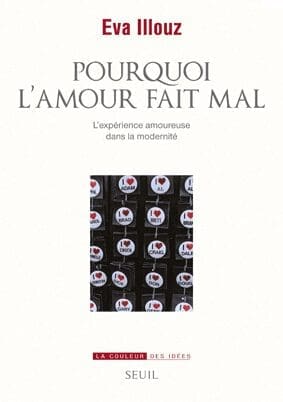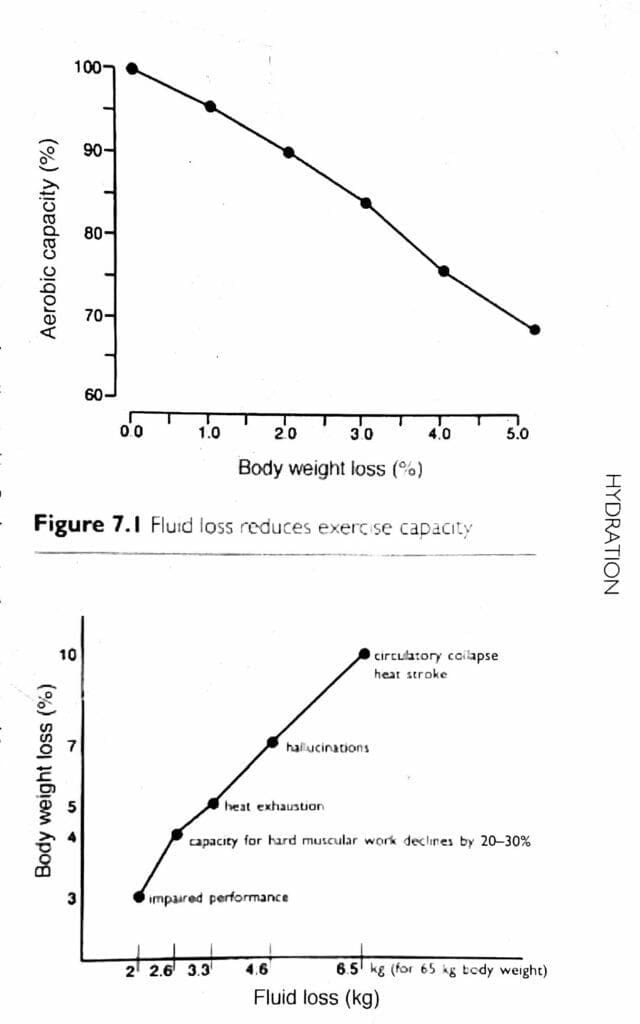Our Difficulty in Love is related to an “Excess” of “Psychology”:
Eva Illouz is a Professor of Sociology at the Hebrew University of Jerusalem and at the School for Advanced Studies in the Social Sciences in Paris. She has written a book about love and what is not working in our current society.


“Why Love Hurts: A Sociological Explanation” (“Pourquoi l’amour fait mal”) by Eva Illouz (Seuil / Polity Press, March 2012, 300 pages) is a book that de-constructs the ideology and patterns of love. (Link).
Eva Illouz explains in her book that “Our difficulty in love is related to an excess of psychology.”
She essentially summarizes everything in one sentence.
Here, we will try to explain how to manage stress while also exploring psychological aspects that can help, based on some psychiatric advice.
When we are stressed, there are two Stress aspects: one is “Mental” and other is “Physical”. In either case, the problem arises when stress increases; There is often not much we can do except to take care of ourselves.
Stress related to love is often very similar to depression (Link). Telling someone that we’re not okay is difficult; it’s something that is difficult to be expressed in words.
We have to remember that taking care of ourselves is the most important first step, especially before we can care for or be okay with others.
Stress can be compared to what mindfulness teachers often describe in the context of depression: our mindset is like a glass of water with dust settled at the bottom. When the glass is shaken, the water becomes cloudy. (As our mind exposed to stress).
There’s not much to do in that moment other than to rest and breath. (Link).
Something simple yet helpful is to go to the library and find books related to Health and Well-being.

What can we do to help Physically ?
Regarding the physical aspect, you can generally see signs of something missing in well-being, (Link) in nutrition: (Link), Hydration: (Link) (Link) (Link), and Good Sleep (Link).
Anita Bean : “Hydration level and Fluid Loss”

( Anita Bean – “The Complete Guide to Sports Nutrition” – https://anitabean.co.uk/my-books/ )
It’s very complex, but stress, dehydration, and hallucinations are generally connected. Stress increases significantly when we become dehydrated, as shown in the Anita schema. Staying hydrated is just as important and helpful as eating or sleeping.
British Heart Foundation : “Understanding Stress”
Where to Start ?

As we can read, a good ways to help reduce stress is:
“Once you know what’s making you stressed, You can start tackling it in a few different ways, This will stop making choices that increase your risk of heart and circulatory diseases:
– Drink plenty of water. Staying hydrated will help you feel less Irritable.
– Try no to Binge Drink – That’s more than 6 Units in a single session for men, and 6 units for women.”
(Remember, as we sometimes say: if you feel thirsty, it means you’re already dehydrated. Also, keep in mind that dehydration can develop over several days. When your body needs rest and rehydration, it may take a few days to fully recover, depending on how much Water you’ve lost.)
Everything affects our Health and lifestyle, which in turn can impact our relationships with loved ones. By reducing stress, we help protect ourselves and others.
Of course, relationships are exposed to life events; There are always ups and downs in every relationship because it’s something alive. However, there are also some tips and tricks to help protect your loved ones. It may sound idealistic, but it can help in some way.
What can we do to help Mentally ?
Doing Therapy:
In a mental crisis, doing therapy or couple therapy is always beneficial for mental health. It helps to recover and sort through various situations by putting ideas down on paper, which improves our ability to move forward with any issue.
If you are experiencing a mental crisis and things are starting to fall apart around you; If you feel something is missing and you’re unable to cope on your own; Talk to your doctor about it. Explaining your feelings and symptoms of depression will allow your doctor to support and guide you. (Link)
Protecting “Unique” loved one:
In France, during a political TV show called Riposte, a female guest was interviewed at the beginning of the show by Serge Moati. The guest explained her point of view on partnership and love:
In relationships between men and women, women generally prefer to remain “The only loved one.” The guest then explains that it is better not to keep anything from past romantic relationships; To throw away, delete, or even burn old memories, whether they are objects, photos, or anything else.
The guest states: “It is very painful for a current partner to suddenly discover old memories: photos, objects, or any other items connected to a past relationship.”
(Note from the HealthInYourPlanet : The guest referred specifically to women during the interview, but this might also apply to men.) (When the guest mentioned burning old memories, the “Burning Expression” was symbolic. Disposing of things at a waste collection centre works just as well; please don’t start a fire in your home to get rid of something you no longer want.)
Music band Zoufris Maracas, in the song “Un Gamin,” says: “There is no love without exclusivity.” This lyric expresses an ideal view, maybe a little radical, but reflects the emotional complexity and challenges that relationships often involve.
Protecting “Love”/”couple” with a “Totem Idea”:

Psychiatrists sometimes explain that when a couple needs to rebuild or preserve their love, one helpful approach is to create a kind of totem; a symbolic object that represents and strengthens their relationship.
As previously mentioned, finding old souvenirs from past relationships is the exact opposite of reinforcing love. This is why it is often recommended to remove such souvenirs, including old pictures and mementos from previous partners.
Even if it feels difficult to part with old souvenirs, removing them is usually the best choice to avoid emotional conflict. At first, we may hesitate or have doubts; But after-ward, we often realize it was the right decision.
Social Context (Family and Friends)
What can we do to help?
Friendship and Relationship “Souvenir”:
Sometimes, when we feel the urge to free ourselves from old souvenirs, there is a risk that we might act too quickly and throw everything away; Only to regret it later.
The best approach is to take some distance from the impulse and then try to sort through your belongings by separating items related to romantic relationships from those connected to friendships. Only you can truly know where the line lies between a former friendship and a past romantic relationship.
The French rapper Disiz La Peste expresses this idea in his song:
“The past is like a little museum, I walk through it to feel better. I keep them, I keep them, I keep them; my memories are pages on canvases.”
(French original version): “Le passé comme un petit musée, je m’y promène pour me faire du bien, je les garde, je les garde, je les garde, mes souvenirs sont des pages sur les toiles.”
Keeping old pictures of family and friends; And looking at them from time to time; Helps us maintain our memory, often without even realizing it.
It allows us to keep relationships warm… maybe sometimes too warm, but it helps preserve our connection to old friends and family.
Keeping our personal history is a choice. As we sometimes say: we build ourselves through others; Whether family, friends, or anyone who has shaped us. They are all part of who we are.self.To find more information about how our memory works and how to maintain it, please visit the (Link)

Comments are closed